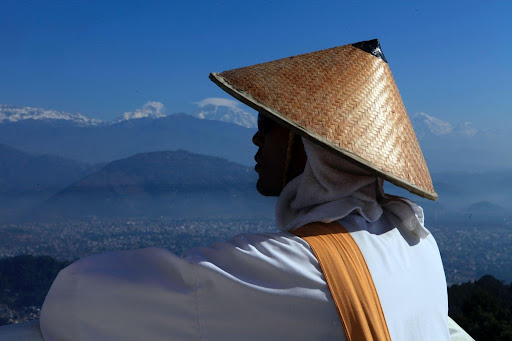The chance to see new locations, interact with various cultures, and extend one’s horizons is provided by travel. The practice of thoroughly embracing regional traditions and customs when traveling, known as cultural immersion, goes beyond simple observation. It entails getting involved in community events, communicating with neighbors, and abiding by cultural customs. We will explore the benefits of cultural immersion and the value it brings to our travels in this essay. Consider speaking with a Melbourne migration agent before starting your cultural journey to make sure your travel arrangements are legal and in compliance with visa requirements.
Participating in Regional Celebrations and Festivals
- Participate in Local Festivals: Cultural expression of a Community is vibrantly expressed through Festivals. Participating in regional celebrations, such as traditional dances, musical performances, and religious holidays, offers a special window into the soul of a country
- Accept Culinary Pleasures: Food is a major part of cultural festivals. Participate in group meals and sample genuine regional fare to get a taste of the region’s flavors and culinary traditions
- Respect the Local Customs: To guarantee that you fit in smoothly with the festivities when taking part in festivals and celebrations, respect the local customs and adhere to any rules or dress regulations.
Learning the Language of the Area
- Learn the Basics: Learning the fundamentals of the language exhibits a respect for the culture and a sincere desire to communicate with the locals
- Communicate with Locals: Having genuine dialogues with locals in their own language creates opportunities for real cultural encounters
- Appreciate Non-Verbal Communication: Effective cross-cultural communication requires an understanding of non-verbal signs and gestures.
Choosing to Stay Locally or in Homestays
- Choose a homestay: Staying with local families or at a homestay enables visitors to gain firsthand insight into daily living. It provides a window into family dynamics, customary daily routines, and regional practices
- Supporting Local Economy: Choosing locally owned hotels over national hotel chains supports the community’s economy and encourages environmentally friendly travel
- Respecting Cultural Norms: To create a mutually enriching experience while staying in homestays or other local lodgings, follow the host’s regulations and customs.
Looking into Historical and Cultural Sites
- Visit Historical Landmarks: Museums and historical sites offer insightful information about a region’s past, legacy, and cultural development
- Recognise Sacred Spaces: Out of respect for local beliefs, show reverence and abide by any restrictions or clothing codes when visiting religious or sacred locations
- Hire Local Guides: Local guides may help you better grasp the historical significance of each location by providing deeper insights and context.
Taking Part in Traditional Arts and Crafts
- Participate in Workshops: Attend traditional craft workshops to pick up tips from local makers and make your own one-of-a-kind mementos under their instruction
- Support Local Artist Communities: By buying handcrafted items directly from regional artists, you can ensure their financial stability and aid in the preservation of traditional artistic styles
- Share Your Knowledge: If you have artistic talent, think about exchanging cultural knowledge with the neighborhood.
Making a Difference for Sustainable Tourism
- Reduce Environmental Impact: Engage in ethical tourism by saving water, reducing waste, and respecting wildlife
- Honoring Local Communities Remember to respect regional traditions and ask for permission before snapping pictures of people or holy sites
- Choose tour companies and activities that prioritize ethical treatment of animals, the preservation of cultural heritage, and the advancement of sustainable development to support ethical practices.
Volunteering and Performing Community Service
- A special opportunity to give back to the neighborhood and have a positive impact is provided by participating in community service and volunteering
- Join neighborhood programmes that promote social advancement, education, or environmental preservation to positively impact the neighborhood
- Working together with the locals promotes intercultural awareness and forges enduring relationships that overcome language barriers.
Participating in Nearby Workshops and Classes
- Learn traditional skills like cooking, handicrafts, or traditional dance by enrolling in workshops and programmes taught by local authorities
- Through encouraging local artisans to pass down their skills, these experiences not only deepen your cultural immersion but also aid in the preservation of cultural heritage
- Take full advantage of the opportunity to learn new skills from those who have been using them for decades by getting fully involved in the learning process.
Seeking Guidance from a Migration Agent in Melbourne
- Consider getting advice from a migration agent in Melbourne to ensure a smooth and well-prepared voyage into cultural immersion.
- An immigration agent can help with visa applications and offer insightful guidance on travel laws and restrictions, freeing you up to fully appreciate the cultural experiences that lie ahead.
- You can handle the logistics of international travel with confidence if you have the assistance of a migration agent because you will be traveling in accordance with visa requirements.
Travelers can foster meaningful connections with local communities and gain a profound understanding of diverse cultures by actively engaging in local festivals, immersing themselves in the language, staying with locals, exploring historical sites, participating in traditional crafts, promoting sustainable tourism, seeking advice on the 186 visa from a reputable agency, and cultivating personal growth and global citizenship. By consulting a migration agency to ensure your travel plans align with the requirements of the 186 visa, you can fully relish the wonders of cultural immersion while respecting and cherishing the rich heritage of the places you visit. Embrace your cultural tour with an open mind and heart to truly appreciate global diversity and create lifelong experiences along the way.
Table of Contents
Discovering Local Traditions through Interactive Workshops
Participating in interactive workshops that delve into local traditions is an enriching way to immerse oneself in the heart of a culture. These workshops offer a hands-on experience in traditional skills such as pottery, weaving, or indigenous crafts. By engaging with skilled local artisans, travelers can learn about the historical significance and cultural symbolism behind each craft. These interactive sessions not only foster cultural understanding but also contribute to the preservation of traditional art forms. As participants gain insights into the meticulous craftsmanship and artistic expressions unique to the region, they develop a profound appreciation for the depth and beauty of local traditions. By supporting these workshops, travelers play an active role in promoting cultural heritage and ensuring its continuity for future generations.
Fostering Lasting Connections through Homestays
Choosing to stay in homestays or with local families provides a transformative experience that fosters lasting connections with the community. Living with locals allows travelers to observe daily life up close, participate in family routines, and share authentic moments with their hosts. Through meaningful interactions and shared experiences, travelers can gain insights into the values, beliefs, and social dynamics that shape the local way of life. Homestays offer an opportunity for cross-cultural exchange, where visitors can share their own customs and stories while learning from the customs and stories of their hosts. This genuine cultural exchange builds bridges of understanding and empathy, breaking language barriers and forging connections that transcend borders. By supporting homestay accommodations, travelers contribute directly to the well-being of local families, fostering mutual respect and friendship between cultures.
Conclusion
In conclusion, cultural immersion is a profound and rewarding way to experience the world and connect with diverse communities. By embracing local traditions and customs while traveling, we gain more than just a superficial understanding of a place – we develop a deep appreciation for its heritage, values, and way of life. Participating in regional celebrations, learning the language, staying with locals, visiting historical sites, engaging in traditional arts, supporting sustainable tourism, and seeking guidance from a migration agent in Melbourne are all invaluable aspects of cultural immersion.
Through these experiences, we cultivate empathy, open-mindedness, and global citizenship. Cultural immersion allows us to break down stereotypes, challenge preconceptions, and foster meaningful connections with people from different backgrounds. By supporting local communities and artisans, we contribute to the preservation of cultural heritage and the sustainable development of destinations.




